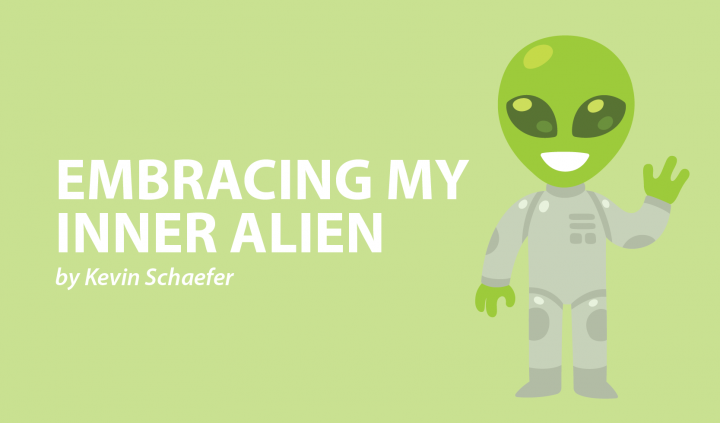The Ups and Downs of ‘The Upside’
Written by |

Even before its theatrical release, the new film “The Upside” garnered its fair share of criticism from a number of disability activists on social media. Its main controversy stems from the fact that it’s yet another example of an able-bodied actor playing a disabled character, a subject I’ve written about before.
Loosely based on a true story — and on the 2011 French film “The Intouchables” — “The Upside” stars Bryan Cranston as a wealthy quadriplegic named Phillip Lacasse, while Kevin Hart plays opposite him as his unlikely caregiver Dell Scott. Categorized as a heartwarming comedy/drama, the movie revolves around the friendship that develops between these two men who come from vastly different backgrounds.
I had my reservations about the film when I saw the trailer a few months ago, mostly because it seemed like the narrative was going to be “an overly cynical rich dude in a wheelchair learns to appreciate life when his new caregiver cheers him up.” As a nonambulatory, working adult who’s lived with a progressive disease since birth, I didn’t need another movie that presents the idea that “being disabled equals misery and suffering.”
Want to learn more about Spinal Muscular Atrophy? Ask your questions in our SMA forums.
Still, I wanted to see the film for myself before I judged it, and I’m glad I did. I saw it with a close friend who also was one of my caregivers in college, and we each liked the movie for several reasons.
The film’s humor is solid. In an early scene in which Phillip interviews a dozen or so hilariously inept candidates to be his new caregiver, one of them confidently proclaims that he doesn’t like the term “disability,” but that he prefers to say “differently abled.” Then, later on, when Phillip and Dell go to a hotdog place downtown, the man behind the counter takes Dell’s order and asks him, “And what’ll he have?”, referring to Phillip. “Uh, ask him,” Dell replies.
Some critics referred to a scene where Dell learns how to put on Phillip’s catheter as less cringe-worthy than they expected, but I commend the filmmakers for including this scene. I wear a catheter every day, and I know firsthand that training a new caregiver to handle this part of my routine can be pretty comedic. It’s these little nuances peppered throughout the screenplay that made me laugh, and that I found quite relatable.
Something else that stood out to me is that the film subverts the “caregiver rescues disabled client” trope. As the story plays out, we see that it’s Dell whose life and circumstances change the most, and that he and Phillip each have a solid amount of character development. Granted, Phillip still has his own struggles and faults, but for the most part, his cynicism stems less from being disabled than from other aspects of his personal life. Some of the film’s more sentimental aspects play out in a pretty cheesy manner, but that’s to be expected from a movie that unabashedly labels itself as “feel-good.”
The only major issue I have with “The Upside” is that Phillip could have, and should have, been portrayed by a disabled actor. Cranston remains one of my favorite actors today, and the chemistry between Hart and him here is uncanny; but regardless, this was a missed opportunity to give a disabled actor a shot.
One of the common arguments for not casting lesser-known actors with disabilities in these roles is that studios need the name recognition to get audiences to see these movies. Here, that argument is invalid, because the movie already has superstar actor and comedian Kevin Hart and Academy Award winner Nicole Kidman in two of the leading roles. Would the film really have suffered at the box office if it had a non-famous quadriplegic actor playing opposite Hart? In fact, it might have convinced more disability activists to see it.
Despite its faults, “The Upside” defies many of the expectations I had for it, and hopefully it opens doors for more positive and entertaining films about people with disabilities in the future. My suggestion: Let Zach Anner, an actor and comedian who has cerebral palsy, play himself in a movie adaptation of his 2016 memoir “If at Birth You Don’t Succeed.” Or, if Hollywood is ever interested in a more unfiltered bromance comedy about the idiosyncrasies of a client-caregiver relationship, my caregiver Randy and I are available.
***
Note: SMA News Today is strictly a news and information website about the disease. It does not provide medical advice, diagnosis, or treatment. This content is not intended to be a substitute for professional medical advice, diagnosis, or treatment. Always seek the advice of your physician or other qualified health provider with any questions you may have regarding a medical condition. Never disregard professional medical advice or delay in seeking it because of something you have read on this website. The opinions expressed in this column are not those of SMA News Today, or its parent company, Bionews Services, and are intended to spark discussion about issues pertaining to spinal muscular atrophy.








Schaefer
Kevin......two thumbs up!!!!
Love:
Grandma,.Grandpa, and Uncle Keith
Kevin Schaefer
Thanks! See you all soon!